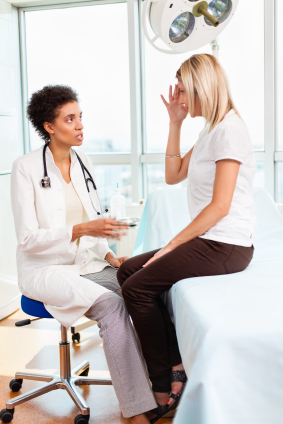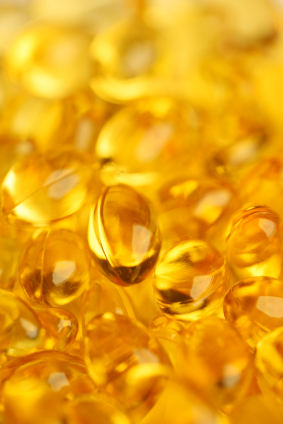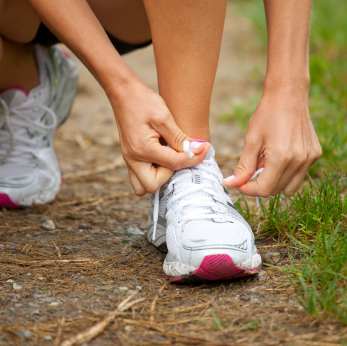Balance. I have it. Sometimes.
 In my 20s, I used to work as studio director for a radio morning show. Often, I’d stay up, watch Late Night with David Letterman, and then hit the sack, only to get up and hit the road to be at the station at 5, bright-eyed and bushy-tailed with coffee for the gang. A little later on, I worked at a 24-hour news network, and my shifts were almost always 3 a.m.-11 a.m. or 4 a.m.-noon. I’d come home, do some other work, my partner would come home, and I’d almost always be in bed after 10 p.m. Five hours sleep was fine. In an magazine job, all-nighters were common as we got to production.
In my 20s, I used to work as studio director for a radio morning show. Often, I’d stay up, watch Late Night with David Letterman, and then hit the sack, only to get up and hit the road to be at the station at 5, bright-eyed and bushy-tailed with coffee for the gang. A little later on, I worked at a 24-hour news network, and my shifts were almost always 3 a.m.-11 a.m. or 4 a.m.-noon. I’d come home, do some other work, my partner would come home, and I’d almost always be in bed after 10 p.m. Five hours sleep was fine. In an magazine job, all-nighters were common as we got to production.
If I tried that now, I would implode in a week. And that isn’t always the easiest thing for a man to admit. We’re supposed to be invulnerable, aren’t we? One of the things I’ve noticed as the years have gone on is I can still be as intense as I was in the past (I think!), but that I can’t maintain that level of intensity for same length of time. I attend a music-industry conference each year where part of the deal is attending music sessions that go on until about four in the morning. I can do that, but inevitably there’s a post-conference crash.
Combine the fact that my “energy well” isn’t as deep as it used to be with the lifestyle of a self-employed consultant, where the pace can sometimes oscillate between frenetic and … what now? and you have a recipe for stress.
I have a few things I try to do to combat that stress. I try to keep my sleep habits as regular as I can. I’m lucky in that I rarely have insomnia, so it’s easy for me to stay rested most of the time. That keeps the energy supply high.
If there’s a frenetic period on the horizon, I will try to book downtime to recharge my batteries after the urgency subsides. Better to book it and keep it for myself than to carry on as if I didn’t just complete a herculean task and end up crashing.
And I try to keep my regular appointments sacred. Yoga class, exercise, and the like can sometimes feel like a distraction that I “should” skip “just this once.” But that has an impact down the road. Short-term gain for long-term pain.
It’s not easy to stay energized all the time. But if you can learn — even attempt — to manage yourself a little better, you can perform at a higher level all the time, rather than some roller-coaster cycle of sprinting, and then collapsing.
What are your tips for managing energy levels? Tell me in the comments.
Read MoreAlternative medicine and the ‘pause: what your gynecologist is thinking
Women rank among the highest consumers of complementary and alternative medicine for their healthcare, and according to the National Center for Complementary and Alternative Medicine, age matters. In fact, the largest percentage of adults reporting that they use alternative medicine strategies are 50 to 59 years old, and as many as 42% discuss their use with their doctors. However, what does your gynecologist think about complementary and alternative medicine use? Is she or he supportive and what modalities tend to rank highest in terms of recommendations or endorsements? Moreover, how do gynecologists differ in their opinions?
In the U.S., most ob/gyns appear to believe that convention medicine practices for reproductive issues might benefit by the integration of complementary strategies. However, most of the positive beliefs focus on biofeedback, chiropractic, acupuncture or meditation. Conversely, the doctors report that they would not recommend dietary changes or Traditional Chinese Medicine and a majority were not strong supporters of herbal medicine. This is in direct conflict with German gynecologists. But why should we care about the Germans and what they think!!!?
To digress, I don’t know how many of you are familiar with the Commission E Monographs but, they comprise the world’s leading scientific summaries on the use of medicinal herbs in health and disease. In the late 1970s, the German Ministry of Health established Commission E, a panel of experts charged with evaluating the safety and efficacy of the herbs available in pharmacies for general use. In all, the group published 380 herbal monographs that are considered “the most accurate information available in the entire world on the safety and efficacy of herbs and phytomedicines.” Hence, the Germans definitely have a leg up when it comes to alternative medicine, at least when it comes to the use of herbal alternatives.
So, let’s take a look at a similar survey experience newly published in Complementary Therapies in Medicine, in which over 2,500 respondents indicated a familiarity with the use of alternative medicine specifically for menopausal symptoms. Almost all of the gynecologists had some experience with black cohosh, chaste tree berry and St. John’s Wort and believed them to be effective. And the modality that they felt was most effective? Lifestyle changes and alteration (think: change in dietary habits, physical activity, reduction of stress, etc). The least effective strategies, at least in the eyes of German doctors, were yoga, acupuncture and homeopathy.
The researchers point out that the viewpoint of German doctors is important because these practitioners play an important and consistent role counseling women who complain of menopausal symptoms. The same is true for their U.S. counterparts. And yet, despite the wealth of data in the Commission E monographs, many doctors still continue to question effectiveness and scientific evidence supporting the use of alternatives.
Will this make a difference with regard to the choices that women are making? Probably not, because as I’ve been writing for years, one size does not fit all, especially when it comes to weighing the benefits versus the risks of hormone replacement.
The next time you have your annual with your gynecologist, find out what she or he thinks of complementary and alternative and strategies and most of all, ask why. What she or he is thinking might not be aligned with what you find works best for you.
Read More
MsFLASH and omega-3s
In early August, I posted two pieces about MsFLASH –Menopause Strategies: Finding Lasting Answers for Symptoms and Health — a network of studies evaluating potentially promising treatments for common menopausal symptoms. Started by the National Institutes of Health, MsFLASH comprises five research centers in Boston, Oakland, Philadelphia, Seattle and Indianapolis who are exploring various interventions for hot flashes, night sweats, mood disorders and sexual issues.
One of these trials set out to evaluate the role of omega-3 fatty acids in menopause, more specifically, whether or not omega-3s would be useful for alleviating hot flashes in women who prefer alternative strategies. Although the benefits of omega-3s are widespread, researchers have not been able to prove that they work against hot flashes. Consequently, over three months, 346 women took either three omega-3 capsules or placebo daily in addition to yoga, aerobics or usual activity. The women reported having roughly 8 hot flashes a day at the start of the study.
Unfortunately, the verdict is still out. Taking omega-3s appeared to have little effect on hot flash frequency or bother; declines in both measures were similar among women whether they were taking the fish oil or placebo (an average 35% decline in both groups and in both variables). What’s more, taking daily fish oil supplements didn’t appear to help sleep or mood. Personally, I find the lack of effect on mood surprising since there are data showing a benefit on depression, especially when it comes to DHA. However, even the researchers acknowledge that the lack of effect here might be due to the degree of depressive or anxiety symptoms that the women in this study experienced.
Regardless, if you are taking fish oils and have seen an improvement in symptoms, I would love to hear from you. Do they help? The search for the magic bullet for hot flashes continues but in the meantime, the more we share, the more we collectively know.
Read More
Newsflash: Ethnic, flashing and menstruating. Three’s a charm?
 Sounds too awful to be true. However, a study of an ethnically diverse group of women has shown that having regular periods, which, theoretically indicates that hormone levels are more on par than their menopausal sisters, may not be all that they are cracked up to be. In fact, among approximately 1,500 women (mean age 48.5), 54% reported having had either hot flashes (~33%) or night sweats (~46%) at some point and recently, anywhere from 17% (hot flashes) to 26% (night sweats). Moreover, it appeared that Black and Native American women were most vulnerable, while Asian women were the least. The numbers among white women were only slightly lower than their Native and Black peers.
Sounds too awful to be true. However, a study of an ethnically diverse group of women has shown that having regular periods, which, theoretically indicates that hormone levels are more on par than their menopausal sisters, may not be all that they are cracked up to be. In fact, among approximately 1,500 women (mean age 48.5), 54% reported having had either hot flashes (~33%) or night sweats (~46%) at some point and recently, anywhere from 17% (hot flashes) to 26% (night sweats). Moreover, it appeared that Black and Native American women were most vulnerable, while Asian women were the least. The numbers among white women were only slightly lower than their Native and Black peers.
What’s so interesting about these data is that typically, obesity has been associated with a self-reported increase in vasomotor symptoms among menopausal women. However, in this group of women, the researchers deliberately adjusted their findings for BMI and age, and they did not find that association. In fact, when they looked at Hawaiian/Pacific Islander women, who had, on average, the highest BMI of all the ethnic groups studies, only 45% reported ever having a hot flash or night sweat, compared to 58% of white women (who had some of the lowest BMIs amongst the group).
Why it matters…
Many women operate under the assumption that it won’t happen to them. Cancer won’t happen. Losing a spouse won’t happen. Having a hot flash or night sweat while still menstruating won’t happen. I refer to that as the ‘teenage mindset,’ since we all know that teenagers are among the most prone to the ‘won’t happen to me’ syndrome. And yet, the data suggest otherwise; even before menopause starts, a hot flash can occur. And it can be bothersome; of the entire group of women who said that they had had some sort of vasomotor event in the prior two weeks, anywhere from 38% (Asian women) to 80% (Hawaiian/Pacific Islander, Native Americans) said it was at least moderately bothersome. White and Black women fell in the middle.
I cannot emphasize it enough; early action is the best action. Don’t wait until you are in the throes of menopause; start now to boost your preventive strategies, whether they entail isoflavones, hypnosis, yoga or acupuncture. I am all for curtailing the worst wherever possible; shouldn’t you be?!
Read More
Fit to be tied: MsFLASH and exercise
Exercise. Does it or doesn’t it? That is, does exercise improve menopausal symptoms? Some studies have shown that it does; and others, like the one I am about to share, shows that it does not.
I am fit to be tied, literally.
Not angry or annoyed but rather, regardless if exercise can improve vasomotor symptoms or not, there is absolutely no doubt that it helps maintain weight, improves overall wellbeing, promotes healthy bones, and may even result in better sleep in midlife. On Wednesday’s post, I shared information about a series of studies called MsFLASH, studies geared towards identifying strategies to alleviate menopausal symptoms and overall health. Today, I ran across one of these trials, published online in Menopause, the goal of which was to clarify the impact of three times weekly aerobic training in women who were in late perimenopause or full menopause reporting frequent and bothersome hot flashes and night sweats.
Exercise/aerobic training can mean a lot 0f things. This time, women who were randomized to 12 weeks of exercise participated in trainer supervised conditioning comprising a treadmill, elliptical or stationary bike for 40 t0 60 minutes each session, with the goal of reaching up to 60% of target heart rate for the first month and up to 70% thereafter (this, along with workload and perceived exertion was measured throughout each session). Likewise, the women had energy expenditure goals relative to their body weight. The other group of women were asked to maintain their usual activity levels but at the end of the study, were offered a one month gym membership or yoga sessions.
While the verdict wasn’t so great for reduction of the frequency and bother of daily hot flashes (both study groups reported declines in hot flash frequency by roughly 2.5% and bother only changed minimally), adhering to training sessions appeared to favourably move the needle for sleep quality and quantity and yielded small improvements in depressive symptoms. Another interesting finding was that race appeared to play a role. Data have shown that African American women actually experience more severe hot flashes than their white peers. And, in this study, while exercise had some impact, albeit minimal, on hot flashes and night sweats, this impact was only seen among white women.
Still unanswered are whether or not small bouts of exercise can positively impact vasomotor symptoms or if individual differences (such as the one that race provides) also play a role. While these questions are being pondered, I’ll leave you where I started: exercise and menopause? Fit to be tied. Don’t give up the activity; it may not help your flashes but it yield a whole lot of benefits beyond cooling the heat that ails.
Read More









